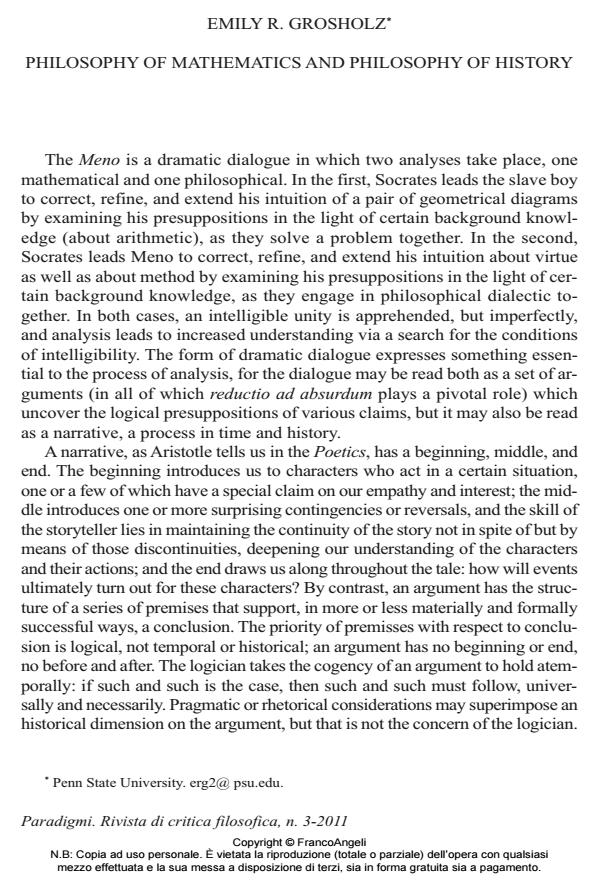Philosophy of Mathematics and Philosophy of History
Journal title PARADIGMI
Author/s Emily R. Grosholz
Publishing Year 2011 Issue 2011/3
Language English Pages 15 P. 13-27 File size 518 KB
DOI 10.3280/PARA2011-003002
DOI is like a bar code for intellectual property: to have more infomation
click here
Below, you can see the article first page
If you want to buy this article in PDF format, you can do it, following the instructions to buy download credits

FrancoAngeli is member of Publishers International Linking Association, Inc (PILA), a not-for-profit association which run the CrossRef service enabling links to and from online scholarly content.
If we suppose that the central activity of mathematicians is analysis, the search for the conditions of solvability of a problem (and more generally, a search for the conditions of intelligibility of the things that mathematics problems concern), then mathematical reasoning must concern narrative as well as argument. It follows as well that philosophers of mathematics must use historical method as well as logic and the deductive methods of natural science. I illustrate these claims by Andrew Wiles’ proof of Fermat’s Last Theorem, and criticize Philip Kitcher’s ahistorical account of mathematical knowledge.
Keywords: Analysis, Argument, History, Method, Narrative, Number theory
- Creativity and Giftedness Reuben Hersh, Vera John-Steiner, pp.135 (ISBN:978-3-319-38838-0)
Emily R. Grosholz, Philosophy of Mathematics and Philosophy of History in "PARADIGMI" 3/2011, pp 13-27, DOI: 10.3280/PARA2011-003002